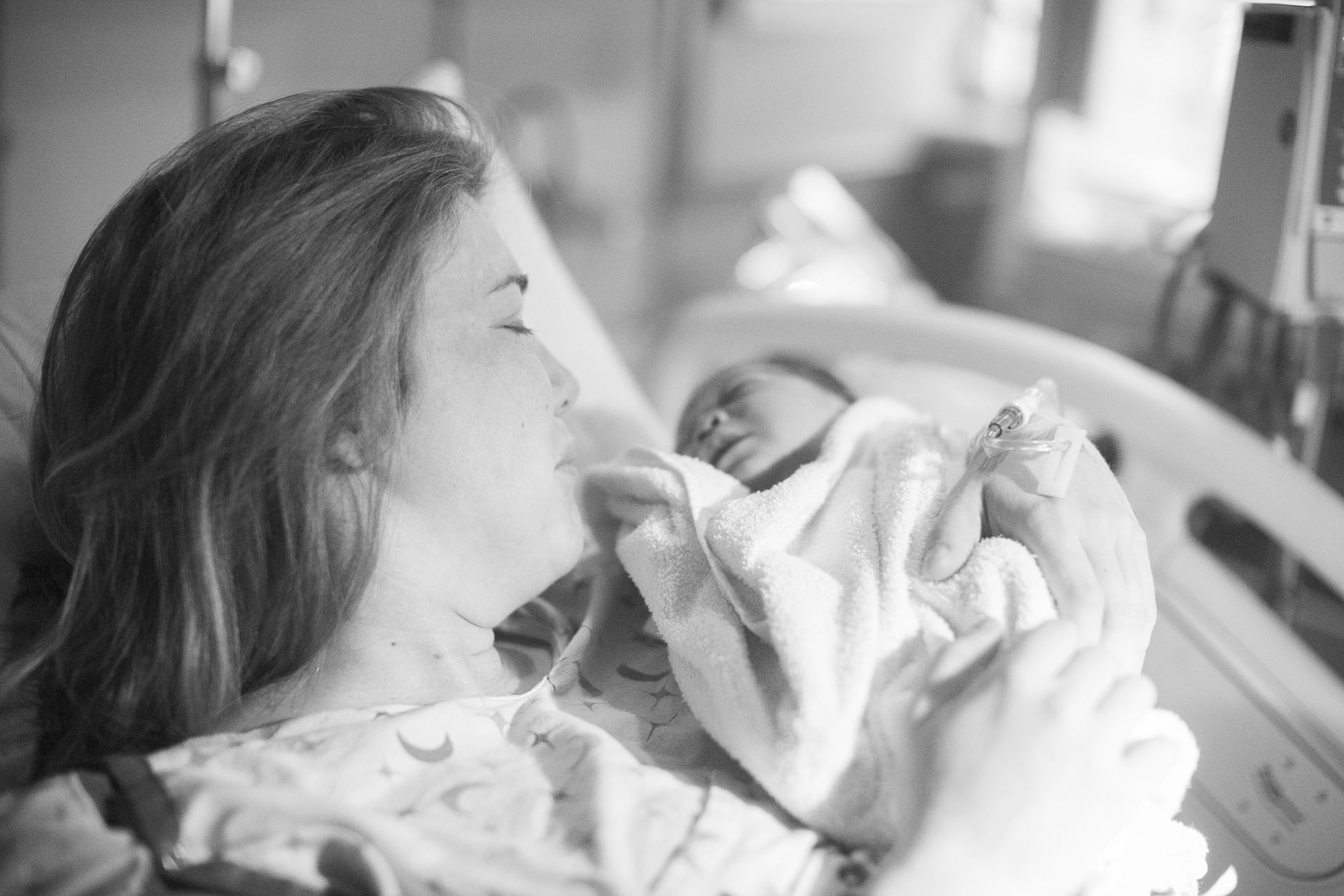There are a number of prenatal tests, also known as fetal assessment tests, that can be recommended by your medical team during pregnancy, some of which are routine, such as ultrasound and others which may only be carried out under certain circumstances.
Fetal screening tests are often combined ultrasound scans with certain types of maternal blood tests. These types of assessment tests are carried out normally to check for any possible fetal anomalies (birth defects). In terms of being able to confirm if any fetal abnormalities exist, the earliest it is possible to discover is between gestational weeks 10 and 13, at the end of the first trimester.

There are a range of ultrasound scans that are available during pregnancy. To learn more about them go to the pregnancy ultrasound scans page.
Prenatal Tests
Harmony Prenatal Test
In 2012, a new type of test became available, which is a non-invasive prenatal test: the Harmony Prenatal Test. This test doesn't carry the same types of risks as some of the earlier fetal assessment tests.In fact it is risk-free for both the fetus and Mum-to-be. This type of testing is also known as cell-free fetal DNA testing. As it carries no risk and can test for a number of conditions, it is the test of choice for consultants. Discover more about the Harmony Prenatal Test.
Alpha-Fetoprotein Test (AFP)
The AFP test can detect if a fetus possibly has either spina bifida or anencephaly. The blood test does this by examining the levels of AFP in the mother's blood. Alpha-fetoprotein is made in the unborn baby's liver.
If the test detects levels that are considered to be abnormal, then a second test will be carried out to ensure as much accuracy as possible. However out of every 1000 women who undergo this test, about 50 women will test with what are considered to be abnormal results. Then from these 50 women, on average as little as one or maybe two of these women, who have previously had high AFP levels, will turn out to be carrying a baby with a health issue. In general, the most accurate time to perform this test is from week 16 to 18.
Which women are offered the AFP test normally?
- If the pregnant woman is age 35 or more
- Women who have diabetes
- Women who have birth defects as part of their own or family medical history
- If the woman has taken some medication that is considered to be harmful
Are there any risks associated with the AFP test?
Apart from the normal discomfort of the needle to take blood taken, there aren't any risks.
What will happen if I get abnormal AFP results?
When abnormal results are discovered, further fetal testing is often necessary. More testing can include high definition ult as well as a triple screen test. If these tests confirm that an abnormality exists, then a more invasive test may be necessary, such as amniocentesis test.

Amniocentesis test
This diagnostic test investigates for various genetic disorders, chromosomal abnormalities and neural tube defects. Some of the best known conditions that this test looks for are spina bifida, cystic fibrosis, Down Syndrome (Trisomy 21).
When is amniocentesis carried out?
Most commonly this test is done during the early period of the second trimester, ideally from week 16 to 18 weeks. When amniocentesis is carried out, an ultrasound is performed to find the safest location to insert the needle, depending on where the fetus and placenta are situated.
Are there any risks associated with amniocentesis test?
There are risks associated with this test, such as miscarriage, infection, needle injury, Rhesus disease and Club Foot. Patients are talked through these risks before the procedure is performed.
Once the test is done from week 15 onwards, the risk of miscarriage is 0.5-1%. If there is some reason to do the test earlier, the risk of miscarriage is higher. In general, if miscarriage does occur after the test, it will happen within a three day period.
Infection is a risk much in the same way as in any surgical procedure. Statistically the risk of infection is for about 1 in every 1000 women tested.
Needle injury or puncture can occur during the test. The placenta can be punctured. However often this heals without creating any complication.
Rhesus disease
If the Mum-to-be's blood types is Rhesus (RhD negative) and her baby's blood is RhD positive, a sort of sensitisation can take place. The blood of the fetus can enter the mother's bloodstream. Her body will then produce antibodies, to protect against what is considered by her system to be a foreign body. When this goes untreated, the fetus may get Rhesus disease.
However to avoid this a test can be carried out before amniocentesis to check for blood types. If necessary anti-D immunoglobulin can be administered to prevent the possible sensitisation.
Club foot
If amniocentesis is performed before week 15, there is a bigger risk of the baby being born with club foot. Talipes (club foot) presents at birth as a deformity of the ankle and foot. This is a congenital condition.
To learn even more about amniocentesis go to the link below:
https://www.nhs.uk/conditions/amniocentesis/risks/
Chorionic Villus Sampling (CVS)
Chorionic villus sampling is a test carried out to check if an unborn baby has certain genetic issues such as Down Syndrome, Edwards' or Patau Syndromes. Carried out normally between the 10th and 13th week, this test takes samples of wispy type projections, called chorionic villi, which are found in the placental tissue. The chorionic villi show the fetus' genetic composition.
CVS carries a slightly larger risk of miscarriage than amniocentesis. It may be performed either as a trans-cervical or trans-abdominal procedure. Although mostly it is carried out via the woman's abdomen. Ultrasound is used as a guiding tool, just like during amniocentesis.
Mostly a local anaesthetic is administered before the procedure. Many women consider it to be uncomfortable rather than painful. Afterwards your tummy may feel a bit sore. When a CVS is trans-cervical, the discomfort is similar to having a cervical screening test.
Cordocentesis/Percutaneous umbilical blood sample (PUBS)
This test is performed from the 18th week on. A sample of fetal blood is taken from the umbilical cord. It can detect chromosomal issues as well as blood disorders, infections, anaemia, malformations and check the amount of fetal platelets that the Mum-to-be has.
The main risk associated with this test is miscarriage. The current average is between one to two miscarriages for every 100 PUBS carried out. Additionally there is a risk of infection, blood loss from the puncture site and that there could be a drop in the fetal heart rate.
Useful organisations
The Miscarriage Association of Ireland
Irish Neo-natal Health Alliance

























































































